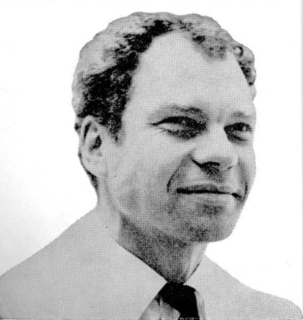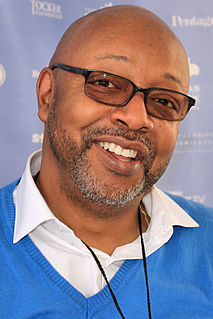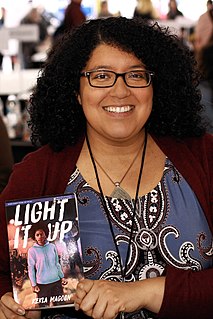A Quote by Paul Rust
Conflict comes from a person's own actions, not what someone else does to them.
Related Quotes
People are always pleased to indulge their religiosity when it allows them to stand in judgment of someone else, licenses them to feel superior to someone else, tells them they are more righteous than someone else. They are less enthusiastic when religiosity demands that they be compassionate to someone else. That they show charity, service and mercy to everyone else.
We buy things. We wear them or put them on our walls, or sit on them, but anyone who wants to can take them away from us. Or break them.
...
Long after he's dead, someone else will own those stupid little boxes, and then someone after him, just as someone owned them before he did. But no one ever thinks of that: objects survive us and go on living. It's stupid to believe we own them. And it's sinful for them to be so important.
Everyone has an equal and absolute right to sovereignty over his own body, his own property, and his own life, and to pursue his own happiness in any way that he chooses. No one has the authority to grant rights to anyone else, because human beings already possess all natural rights at birth. These rights include both personal and economic freedoms, and the only way they can be lost is if someone takes them away by force. The only right that an individual does not naturally possess is the right to violate someone else's liberty.
Actions are held to be good or bad, not on their own merits, but according to who does them. There is almost no kind of outrage-torture, imprisonment without trial, assassination, the bombing of civilians-which does not change its moral color when it is committed by 'our' side. The nationalist not only does not disapprove of atrocities committed by his own side, he has a remarkable capacity for not even hearing about them.
If a man has a sense of identity that does not depend on being shored up by someone else, it cannot be eroded by someone else. If a woman has a sense of identity that does not depend on finding that identity in someone else, she cannot lose her identity in someone else. And so we return to the central fact: it is necessary to be.
You almost have to step outside yourself and look at you as if you were someone else you really care about and really want to protect. Would you let someone take advantage of that person? Would you let someone use that person you really care about? Or would you speak up for them? If it was someone else you care about, you'd say something. I know you would. Okay, now put yourself back in that body. That person is you. Stand up and tell 'em, "Enough!




































